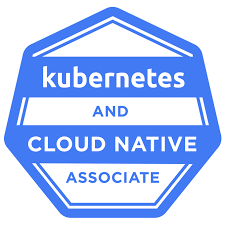
The Kubernetes and Cloud Native Associate (KCNA) certification is an entry-level credential designed to validate foundational knowledge and skills in Kubernetes and the broader cloud-native ecosystem. This certification covers essential topics such as Kubernetes architecture, container orchestration, and cloud-native principles, making it ideal for individuals new to cloud technologies or those looking to enhance their careers in this rapidly growing field.
Kubernetes and Cloud Native Associate training in New York is important as it equips candidates with the necessary skills to deploy applications using Kubernetes and understand the cloud-native landscape. With the increasing adoption of Kubernetes across industries, obtaining this certification not only enhances job prospects but also provides a solid foundation for pursuing advanced certifications like Certified Kubernetes Administrator (CKA) and Certified Kubernetes Application Developer (CKAD)
Apply Now
Benefits of Kubernetes and Cloud Native Associate Training
Kubernetes and Cloud Native Associate (KCNA) training offers numerous benefits that significantly enhance candidates’ chances of passing the certification exam. This training provides a thorough understanding of Kubernetes fundamentals, container orchestration, and cloud-native architecture, equipping learners with essential skills to navigate the cloud-native ecosystem effectively.
The course combines theoretical knowledge with practical exercises, quizzes, and mock exams, which reinforce learning and prepare participants for real-world scenarios. By completing this training, candidates not only gain confidence in their abilities but also improve their job prospects, as Kubernetes skills are in high demand across various industries, making certification a valuable asset in the tech job market.
- Learning Objectives and Outcome
- Topics Covered
- Target Audience
- Prerequisites and Eligibility Criteria
– Gain a solid grasp of Kubernetes architecture, including pods, services, and deployments, essential for managing containerized applications.
– Learn the principles of container orchestration, including how Kubernetes automates deployment, scaling, and management of applications.
– Understand the key concepts of cloud-native architecture, such as microservices, serverless computing, and the importance of open standards.
– Acquire knowledge in cloud-native observability, focusing on telemetry, monitoring, and cost management using tools like Prometheus.
– Familiarize yourself with application delivery processes, including GitOps and CI/CD workflows, to streamline software development and deployment.
– Engage in hands-on exercises and real-world scenarios to apply theoretical knowledge effectively.
– Equip yourself with the necessary skills and confidence to pass the KCNA certification exam successfully.
– Learn about the fundamental architecture of Kubernetes, including its components such as clusters, nodes, pods, and control planes.
– Understand the core principles of container orchestration, including automated deployment, scaling, and management of containerized applications.
– Explore key Kubernetes components like services, deployments, replicasets, daemonsets, statefulsets, and config maps.
– Gain insights into container networking, including network policies and service discovery mechanisms.
– Learn about resource allocation, autoscaling, and load balancing to optimize application performance.
– Understand how to create and manage Kubernetes manifests using YAML and JSON for application deployment.
– Familiarize yourself with security concepts such as Role-Based Access Control (RBAC) and secrets management.
– Discover how to extend the Kubernetes API and utilize custom resources to enhance functionality.
– Developers
– DevOps Engineers
– Site Reliability Engineers (SREs)
– IT Professionals
– Cloud Architects
– IT Managers
– Technical Support Specialists
– System Administrators
– Network Engineers
To effectively participate in the Kubernetes and Cloud Native Associate (KCNA) training, participants should have a few foundational prerequisites. A basic understanding of the Linux command line and operating system environments is essential, as many Kubernetes operations are performed through the command line. Additionally, familiarity with container concepts, such as what containers are and how they function, will greatly enhance the learning experience.

Choose Goipexpert
Goipexpert is an ideal choice for Kubernetes and Cloud Native Associate (KCNA) training in New York due to its comprehensive curriculum, expert instructors, and commitment to hands-on learning. The course covers fundamental Kubernetes concepts, container orchestration principles, cloud-native architecture, observability practices, and application delivery processes, equipping learners with the knowledge and skills needed to thrive in the cloud-native ecosystem.
Goipexpert’s Kubernetes and Cloud Native Associate training in New York is designed to provide a balance of theoretical understanding and practical application, with ample opportunities for hands-on exercises and real-world scenarios. The expert instructors bring a wealth of industry experience, ensuring that the training is relevant, engaging, and tailored to the needs of the participants.
By choosing Goipexpert, learners can expect a learning experience that not only prepares them for the KCNA certification exam but also sets them up for success in their cloud-native careers.
Kubernetes and Cloud Native Associate Exam Format
Exam Duration | 90 Minutes |
Number of Questions | 40-50 |
Types of Questions | MCQs |
Retake | One |
Exam Eligibility | 12 Months |
Languages | English |
Certification Validity | 2 Years |
Exam Delivery | Online |
Domains of Kubernetes and Cloud Native Associate
Domains | Description |
Kubernetes Architecture | Understand the core components and structure of Kubernetes, including clusters, nodes, and pods. |
Container Orchestration | Learn how Kubernetes automates the deployment, scaling, and management of containerized applications. |
Networking | Explore networking concepts within Kubernetes, including service discovery and communication between pods. |
Storage Management | Understand persistent storage options and how to manage stateful applications in a Kubernetes environment. |
Security | Learn about security practices in Kubernetes, including Role-Based Access Control (RBAC) and secrets management. |
Monitoring and Logging | Gain insights into observability practices, including monitoring and logging tools for Kubernetes applications. |
Configuration Management | Understand how to manage configurations using ConfigMaps and Secrets to enhance application deployment. |
Application Delivery | Explore CI/CD integration with Kubernetes to streamline application deployment and updates. |
Troubleshooting | Learn techniques for diagnosing and resolving issues within Kubernetes clusters and applications. |
API and Custom Resources | Understand how to extend Kubernetes functionality using custom resources and the Kubernetes API. |
Service Mesh | Explore the role of service meshes in managing microservices communication and observability in Kubernetes. |
Best Practices | Learn industry best practices for deploying, managing, and scaling applications in a Kubernetes environment. |

Kubernetes and Cloud Native Associate Examination cost
The Kubernetes and Cloud Native Associate (KCNA) certification exam costs $250. This fee includes one free retake, allowing candidates to attempt the exam again if they do not pass on their first try.

Career Post Kubernetes and Cloud Native Associate
Earning the Kubernetes and Cloud Native Associate (KCNA) certification opens up numerous career opportunities in the rapidly growing field of cloud computing. With Kubernetes skills in high demand across various industries, KCNA holders are well-positioned to pursue roles such as DevOps Engineer, Site Reliability Engineer, Cloud Architect, and Cloud Support Engineer. The certification demonstrates a solid understanding of Kubernetes architecture, container orchestration principles, cloud-native application delivery, and observability practices. KCNA holders can contribute to the development, deployment, and management of scalable, resilient, and efficient cloud-native applications.
Average Salary
The average salary for candidates with Kubernetes skills in the United States ranges from $105,000 to $175,000 per year

Experienced People
Jessica Brown
Yoni Albert
Christine Eve
David Hardson
Fred Andrew
Sarah Rose
Enroll for Kubernetes and Cloud Native Associate Today
Don’t just watch tutorials, experience the thrill of ethical hacking firsthand. Visit our training center today and take the first step towards becoming a certified penetration tester.















